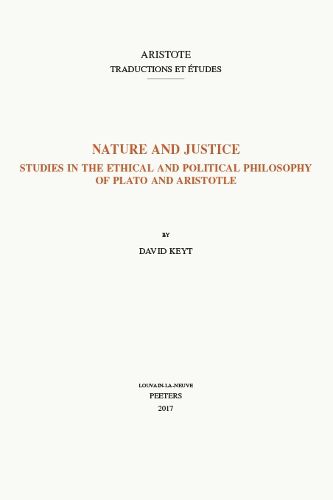Readings Newsletter
Become a Readings Member to make your shopping experience even easier.
Sign in or sign up for free!
You’re not far away from qualifying for FREE standard shipping within Australia
You’ve qualified for FREE standard shipping within Australia
The cart is loading…






A collection of articles on Plato’s Republic and Aristotle’s
Nicomachean Ethics and Politics. The newly written
introductory chapter offers a sketch of the metaphysical foundations of
Plato’s and Aristotle’s ethical and political philosophy. Two chapters
on the Republic examine Plato’s account of justice and his use of the
ship of state metaphor. The remainder of the book is devoted to
Aristotle and discusses such topics as his view of the best life for a
man, his political naturalism, his proto-anarchism, his theory of
distributive justice, and his ideal polis. The final chapters, also
newly written, address the unattractive features of Aristotle’s
political ideal-natural slavery, the subordination of women, and the
denigration of technical skill-and argue that these features are in fact
inconsistent with the basic principles of his ethical and political
philosophy. The volume ends with a defense of the claim that Aristotle’s
political philosophy, once shorn of its excrescences, is updateable to
the twenty-first century.
$9.00 standard shipping within Australia
FREE standard shipping within Australia for orders over $100.00
Express & International shipping calculated at checkout
Stock availability can be subject to change without notice. We recommend calling the shop or contacting our online team to check availability of low stock items. Please see our Shopping Online page for more details.
A collection of articles on Plato’s Republic and Aristotle’s
Nicomachean Ethics and Politics. The newly written
introductory chapter offers a sketch of the metaphysical foundations of
Plato’s and Aristotle’s ethical and political philosophy. Two chapters
on the Republic examine Plato’s account of justice and his use of the
ship of state metaphor. The remainder of the book is devoted to
Aristotle and discusses such topics as his view of the best life for a
man, his political naturalism, his proto-anarchism, his theory of
distributive justice, and his ideal polis. The final chapters, also
newly written, address the unattractive features of Aristotle’s
political ideal-natural slavery, the subordination of women, and the
denigration of technical skill-and argue that these features are in fact
inconsistent with the basic principles of his ethical and political
philosophy. The volume ends with a defense of the claim that Aristotle’s
political philosophy, once shorn of its excrescences, is updateable to
the twenty-first century.